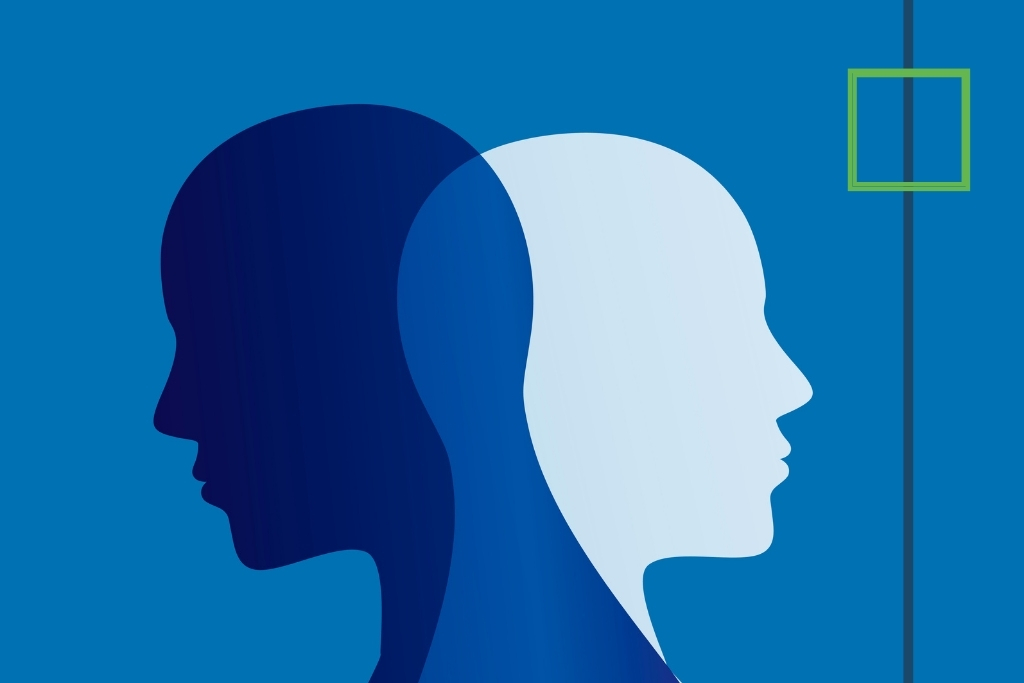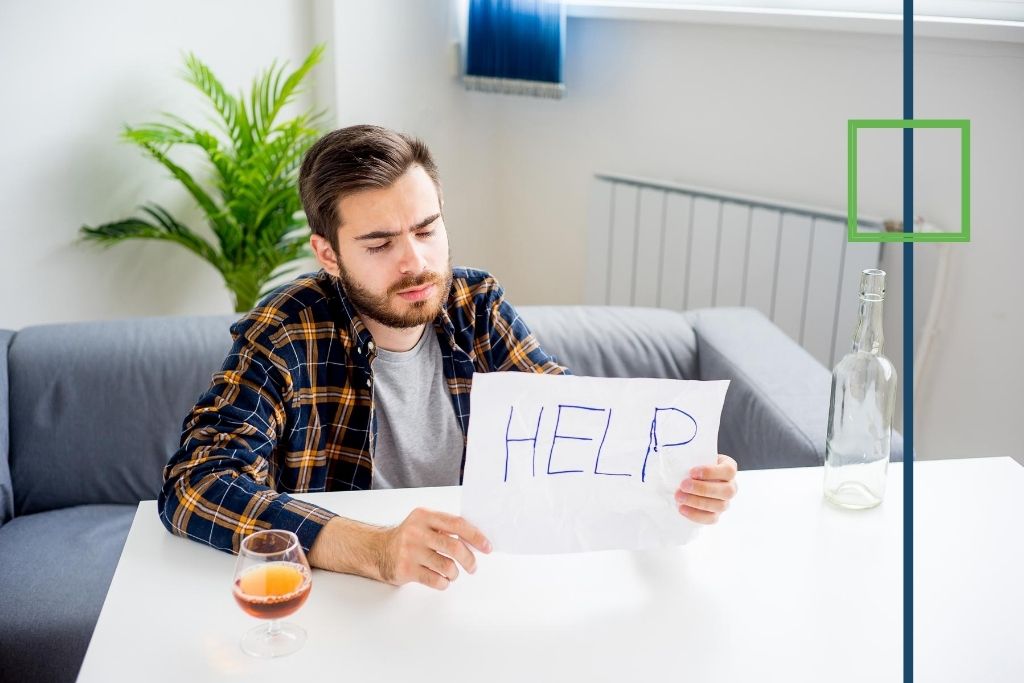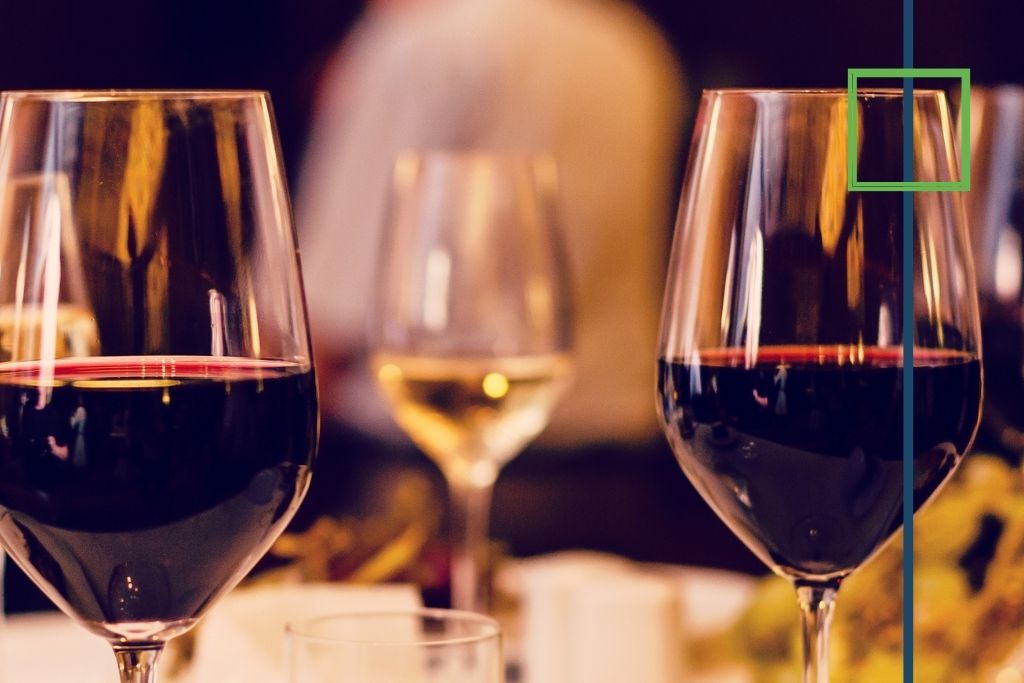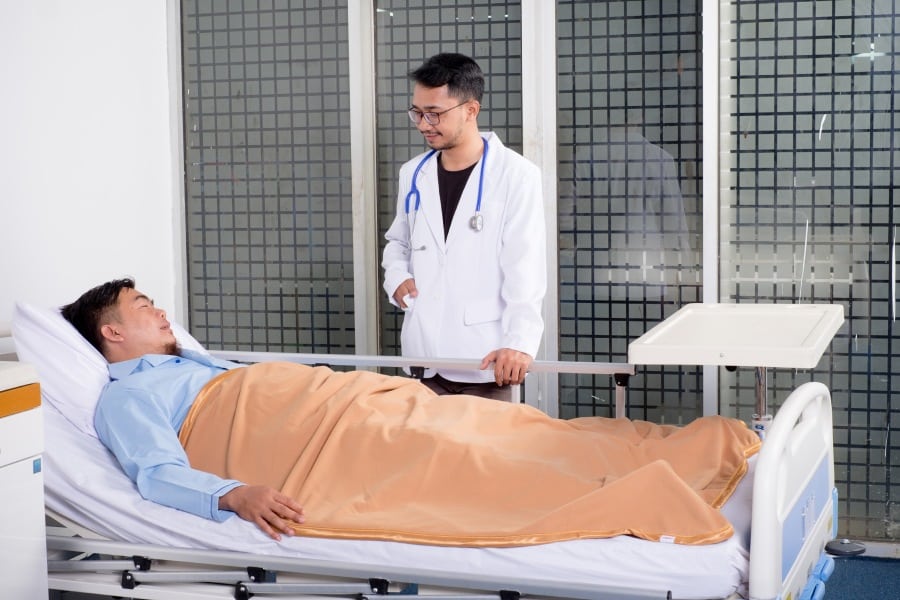Understanding Bipolar Disorder
A mental health illness called bipolar disorder, originally known as manic depressive disorder, is related to both depressive and manic episodes. Some bipolar mood disorder patients use alcohol or drugs to manage their emotional highs and lows.
Bipolar disorder is characterized by drastic mood shifts, in contrast to “unipolar” depression, which is related to low mood. Bipolar disorder falls into several kinds, but they all include periods of severe depression that can abruptly change to times of euphoric highs and high levels of energy.
Bipolar disorder typically manifests in people in their mid-20s. Research shows that the signs and symptoms of bipolar disorder will be more severe the earlier they appear.
What Causes Bipolar Disorder?
There is currently no known cause for bipolar disorder. However, research shows that a person’s likelihood of developing bipolar disorder is influenced by both brain function and shape and genetic inheritance. Bipolar disorder is not thought to be significantly affected by environmental variables, unlike many other depressive disorders.
Skip To:
- Understanding Bipolar Disorder
- Link Between Bipolar Disorder and Alcoholism
- Bipolar Disorder and Alcohol Abuse
- Bipolar and Alcohol Effects
- Can Drugs and Alcohol Cause Bipolar?
- Mixing Alcohol and Bipolar Medication
- Bipolar and Alcoholism Symptoms
- Bipolar and Alcohol Withdrawal
- Bipolar and Alcohol Addiction
- Bipolar and Alcoholism Recovery
- Bipolar and Alcohol Treatment Centers for Co-Occurring Disorders
Learn More:
Get Help. Get Better. Get Your Life Back.
Searching for Accredited Drug & Alcohol Rehab Centers Near You? Or Mental Health Support?
Even if you have failed previously, relapsed, or are in a difficult crisis, we stand ready to support you. Our trusted behavioral health specialists will not give up on you. Call us when you feel ready or want someone to speak to about therapy alternatives to change your life. Even if we cannot assist you, we will lead you wherever you can get support. There is no obligation. Call our hotline today.
FREE Addiction Hotline – Call 24/7Link Between Bipolar Disorder and Alcoholism
Bipolar disorder and alcohol addiction are frequently seen together. According to some research, most people with bipolar disorder will experience an alcohol use disorder at some point in their lives. Nearly half of those who have bipolar disorder also struggle with an alcohol abuse issue of some kind.
Many people think that bipolar disorder refers to someone who, like a switch being flipped on, can experience happiness one second and sadness or hostility the next. This is not at all how bipolar disorder is. Intense feelings of joy or emptiness may mix with hopelessness or a sense of being lost. Although it may appear to be a never-ending struggle, there is much more to each person’s suffering.
Bipolar disorder patients may feel out of control or disconnected from their lives. When an episode begins, being unsure of what to do or how to feel makes turning to alcohol a highly tempting approach for easing these numbing symptoms.
Alcohol eases tension, particularly in social situations. It may temporarily lessen the negative bipolar disorder symptoms, but it also increases the likelihood that the disease will eventually worsen.


Get Your Life Back
Find Hope & Recovery. Get Safe Comfortable Detox, Addiction Rehab & Mental Health Dual Diagnosis High-Quality Care at the We Level Up Treatment Centers Network.
Hotline (877) 378-4154Bipolar Disorder and Alcohol Abuse
Alcohol’s sedative effects are believed to intensify bipolar disorder. Similar to several drugs, it causes a risk of depressive symptoms with every drink. Alcohol also significantly worsens mania, which many bipolar patients find very pleasant. Alcohol, however, can intensify bipolar disorder’s side effects in either direction, worsening with every drink.
When taking bipolar medication, especially on an empty stomach, drinking can make one drink into several. Alcohol can also worsen bipolar disorder, allowing an empty glass to take control of your emotions.
Comfortable Facilities & Amenities
High-Quality Addiction & Mental Health Rehabilitation Treatment
Rehab Centers TourRenowned Addiction Centers. Serene Private Facilities. Inpatient rehab programs vary.
Addiction Helpline (877) 378-4154Proven recovery success experience, backed by a Team w/ History of:
15+
Years of Unified Experience
100s
5-Star Reviews Across Our Centers
10K
Recovery Success Stories Across Our Network
- Low Patient to Therapist Ratio
- Onsite Medical Detox Center
- Comprehensive Dual-Diagnosis Treatment
- Complimentary Family & Alumni Programs
- Coaching, Recovery & Personal Development Events
Bipolar 1 and Alcohol
Bipolar I Disorder is a severe form of the disorder. With this kind of disease, a confused state of mind frequently happens along with strong euphoric or exciting feelings. Only this enjoyment stage degrades since it is immediately followed by deep sadness and depression. Alcohol can only make the signs and symptoms worse. Avoiding alcohol can make a person recover from Bipolar disease faster. Mania, a state in which affected people may not be able to comprehend and perceive the environment around them correctly, is the characteristic of Bipolar I.
Bipolar 2 and Alcohol
Although less severe than Bipolar I Disorder, Bipolar II Disorder still includes powerful emotions. Similar to Bipolar I Disorder, this disorder elevates sentiments of happiness, although it never progresses to extreme mania levels. Instead, hypomania, characterized by powerful emotions but a general lack of losing contact with reality, is a characteristic of Bipolar II. It would also be best if alcohol is avoided completely during this condition. Bipolar II Disorder is sometimes misinterpreted as depression since the condition is frequently accompanied by depression. This is the origin of the phrase “manic depression.”
World-class, Accredited, 5-Star Reviewed, Effective Addiction & Mental Health Programs. Complete Behavioral Health Inpatient Rehab, Detox plus Co-occuring Disorders Therapy.
CALL (877) 378-4154End the Addiction Pain. End the Emotional Rollercoaster. Get Your Life Back. Start Drug, Alcohol & Dual Diagnosis Mental Health Treatment Now. Get Free No-obligation Guidance by Substance Abuse Specialists Who Understand Addiction & Mental Health Recovery & Know How to Help.
Bipolar and Alcohol Effects
Many people with bipolar disorder still choose to drink despite the cloudy nights and exhausting hangovers that cause a mixed bag of increased emotions once the alcohol leaves the body. Some people find that the heightened mania and the sensations of relaxation greatly surpass the depressive effects of alcohol.
Alcohol would depress a bipolar person’s mood more than it would raise it, but for some people, the trade-off is worth it. Alcohol reduces the anxiety that comes with the irrational thoughts and ups and downs that bipolar disorder causes. Mild medications don’t seem to eliminate all of the bipolar disorder symptoms that many people experience. The negative effects of most drugs are sometimes so severe for people with bipolar disorder that they would prefer to self-medicate and cope with the penalties.
Experience Transformative Recovery at the We Level Up Treatment Center.
See our authentic success stories. Get inspired. Get the help you deserve.



Start a New Life
Begin with a free call to an addiction & behavioral health treatment advisor. Learn more about our dual-diagnosis programs. The We Level Up treatment center network delivers various recovery programs at each treatment facility. Call to learn more.
- Personalized Care
- Caring Accountable Staff
- Comfortable Amenities
- Licensed & Accredited
- Renowned w/ 5-Star Reviews
We’ll Call You
Bipolar and Alcohol Blackouts
Alcohol use and bipolar disorder together can be extremely dangerous. Alcohol can cause a severe depressive episode in bipolar patients whose symptoms are otherwise under control. Sometimes, people facing bipolar disorder may also experience blackouts in some cases. It can worsen manic symptoms and increase the likelihood of someone acting on their hallucinations or experiencing other psychotic symptoms.
Bipolar and Alcohol Rage
People who experience bipolar disorder and drink are more agitated and volatile. Drinking alcohol might make a bipolar person’s mood less stable. Additionally, it can increase their tendency for violence and anger, even experiencing what some refer to as a “bipolar rage episode.”

Can Drugs and Alcohol Cause Bipolar?
Alternating mood episodes are a defining feature of bipolar disorder. While many people with bipolar disorder suffer manic or hypomanic periods followed by depressed episodes, some people switch between symptom-free intervals and manic episodes.
People with bipolar disorder may utilize the same drugs during their manic and depressed phases or a variety of drugs with various effects. Drugs like alcohol and marijuana can heighten feelings of creative inspiration or help people feel calmer during manic episodes. Alcohol can also dull the discomfort brought on by depressive episodes. Stimulants, however, can give you more energy momentarily.
The after-effects of usage pose some of the deepest concerns for those with co-occurring mood and substance abuse disorders. Most substances that increase energy or mood also make people feel anxious and depressed, and tired afterward. For those who have bipolar disorder, these symptoms can be quite severe and may even cause a mood episode.
Mixing Alcohol and Bipolar Medication
Bipolar disorder is often treated with both counseling and medication. Medication is crucial in the case of bipolar disorder. While bipolar disorder is physiologically based and can continue even when a person has significant psychological improvement during treatment, trauma and other personal variables can worsen and trigger its symptoms.
The mood stabilizers known as anticonvulsants are the ones that are most usually used for alcohol and bipolar disorder. Bipolar illness medications can help avoid or minimize the symptoms of mania and depression. Bipolar disorder sufferers run a high risk of major manic or depressive episodes if they stop taking their meds, believing their symptoms have been treated.
Abusing drugs or alcohol greatly increases the likelihood that an individual with bipolar disorder would stop taking their medications, which could result in the return of symptoms that may have been under control for a very long period. Additionally, substance abuse disrupts the treatment process, resulting in persons losing or forgetting abilities or insights gained during treatment. Dropping out of treatment for bipolar disorder can have profound implications, including hospitalization or even suicidal attempts.
Bipolar and Alcoholism Symptoms
The sedative effects of alcohol are thought to make bipolar disorder worse. It increases the chance of depressive symptoms with each sip, much like many substances do.
During a period of depression, symptoms may include:
- Feeling depressed, despairing, or angry
- Lacking energy
- Having trouble focusing and remembering things
- Loss of enthusiasm for routine activities
- Absence of any sense of purpose or worth
Bipolar disorder’s manic phase may involve:
- Conversing fast
- Having a lot of energy
- Feeling inflated by oneself
- Feeling inspired by new plans and fantastic ideas
- Being prone to distraction
- Being irritable or upset easily
A considerable amount of alcohol also intensifies mania, which many bipolar patients find quite pleasurable. However, alcohol can increase the negative effects of bipolar disorder in either direction with each drink.
Bipolar and Alcohol Withdrawal
Alcoholism and other substance usages, according to several studies, may worsen the disease symptoms of bipolar disorder. Alcohol use problem seems to worsen the disease, leading to more frequent hospitalizations. Alcohol, like any other addictive drug, when stopped, can cause withdrawal symptoms and are difficult to stop. Additionally, compared to those with less severe bipolar symptoms, those with more treatment-resistant symptoms such as fast cycling through the episodes—are more likely to have co-occurring alcohol dependence.
Bipolar and Alcohol Addiction
Alcoholism and bipolar disorder often interact with each other. Although the connection between alcohol use disorder and bipolar disorder is not fully understood, the following factors likely contribute:
- Inherited Characteristics – Genetic variations may influence bipolar disorder-related changes in brain chemistry. These characteristics may alter how the brain processes alcohol and other drugs, raising the risk of alcohol use disorder and drug addiction.
- Mania – The rebound from depression is typically accompanied by hyperactivity and an elated mood. It frequently results in poor judgment and weakened inhibitions, which might increase alcohol or drug abuse.
Alcohol use disorder or other sorts of substance abuse can be harmful partners to bipolar disorder. Each one can make the other’s symptoms and intensity worse. The likelihood of mood swings, sadness, violence, and suicide increases if both factors exist.

What Causes Bipolar Individuals To Drink?
Some people use alcohol to treat their bipolar disorder symptoms, such as anxiety and depression. Drinking may appear to assist, but over time it worsens symptoms. This can result in additional drinking, creating a challenging cycle to break. A person with bipolar disorder is far more likely to stop taking their prescriptions if they use drugs or alcohol, which might cause symptoms that may have been in control for a long time to reappear. Additionally, substance addiction inhibits recovery, causing patients to lose or forget skills or knowledge acquired throughout treatment.
Bipolar and Alcoholism Recovery
Bipolar disorder and alcohol use disorder (AUD) are frequently treated independently. However, treating both diagnoses simultaneously is nearly always preferable to waiting for the symptoms of the previously treated disease to return due to the untreated illness.
Treatment is a crucial success element for addressing any condition, even though there is finite proof of simultaneously treating both disorders. Learning how to manage bipolar disorder effectively can help people make better judgments, such as choosing to continue avoiding alcohol.
People with bipolar disorder frequently use alcohol to numb the condition’s symptoms. The uncontrollable state that is felt can be reduced with medication, which lessens the desire to use alcohol to relieve. In addition, many bipolar drugs have particularly bad interactions with alcohol, leading to unpleasant side effects like severe hangovers and vomiting.

Bipolar and Alcohol Treatment Centers for Co-Occurring Disorders
The Substance Abuse and Mental Health Services Administration (SAMHSA) advises using an integrated treatment approach to address co-occurring disorders properly. Instead of treating each condition alone without considering the other, integrated treatment combines therapies for substance abuse and mental health.
Treatment for integrated or dual diagnoses frequently includes behavioral interventions like cognitive-behavioral therapy (CBT) or dialectical behavior therapy (DBT), which can enhance coping mechanisms and lessen undesirable behaviors. These could be used along with medication-assisted treatment (MAT). To achieve a healthy balance and long-term recovery, integration is essential.
Because co-occurring disorders are so closely linked to instances of substance addiction, treating them is a crucial part of our inpatient treatment program. Setting patients up for success includes developing a treatment plan that tackles the physiological effects of withdrawal, the psychological relationship between drug use and use, and addressing underlying mental health conditions.
At We Level Up NJ, we believe the patient’s chances of a successful, relapse-free recovery are greatly increased if they can identify the underlying issue and treat it along with their bipolar and alcohol abuse. In reality, patients will have achieved an important goal. They will be one step closer to long-term sobriety if we can properly diagnose and start treating the underlying issue that is causing or co-occurring with the addiction to alcohol or other substances.